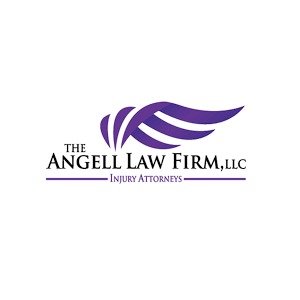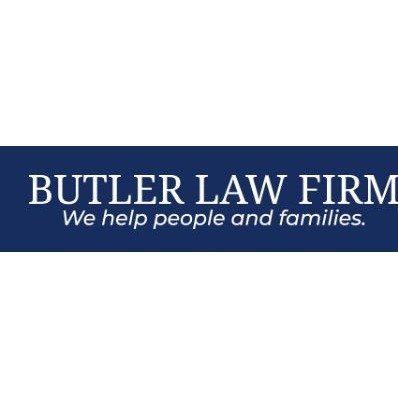Best Truck Accident Lawyers in Atlanta
Share your needs with us, get contacted by law firms.
Free. Takes 2 min.
List of the best lawyers in Atlanta, United States
About Truck Accident Law in Atlanta, United States:
Truck accidents in Atlanta, United States can have devastating consequences, often resulting in serious injuries and property damage. Understanding the basics of truck accident law is crucial if you find yourself involved in such an incident. Truck accident laws in Atlanta are designed to protect victims and ensure fair compensation for their damages.
Why You May Need a Lawyer:
In certain situations, hiring a lawyer who specializes in truck accidents can greatly benefit your case. Here are some common scenarios where legal help is recommended:
- If you have sustained severe injuries or significant property damage due to a truck accident.
- If multiple parties are involved, such as the truck driver, trucking company, or other third parties.
- If you believe that the truck driver or another party involved was negligent or at fault for the accident.
- If the insurance company is pressuring you to settle quickly or offering an insufficient amount.
- If you are unsure about your rights and the legal proceedings associated with a truck accident case.
Local Laws Overview:
When dealing with truck accidents in Atlanta, it's essential to understand some key aspects of the local laws:
- In Atlanta, commercial trucks must adhere to specific regulations imposed by both state and federal authorities to ensure safety.
- Truck drivers are required to have a valid commercial driver's license (CDL) and follow specific guidelines related to hours of service, maintenance, and weight limits.
- Proving liability in a truck accident case may involve investigating violations of these regulations, driver fatigue, improper cargo loading, or vehicle maintenance issues.
- Comparative negligence applies in Georgia, which means that even if the injured party is partially at fault, they may still be eligible for compensation.
Frequently Asked Questions:
Q: What should I do immediately after a truck accident?
A: After ensuring your safety, call the police and seek medical attention for any injuries. Obtain the truck driver's information, take pictures of the accident scene, and gather contact details of any witnesses.
Q: Should I speak to the insurance company without a lawyer?
A: It's generally advisable to consult with a lawyer before speaking to the insurance company. They can guide you on what to say, help protect your rights, and negotiate a fair settlement on your behalf.
Q: How long do I have to file a lawsuit after a truck accident?
A: In Atlanta, Georgia, the statute of limitations for filing a personal injury lawsuit for a truck accident is typically two years from the date of the incident. It's crucial to take legal action within this timeframe to preserve your rights.
Q: What damages can I recover in a truck accident case?
A: In a truck accident case, you may be eligible to receive compensation for various types of damages, including medical expenses, lost wages, property damage, pain and suffering, and, in some cases, punitive damages.
Q: What should I look for when choosing a truck accident lawyer?
A: When selecting a truck accident lawyer, consider their experience handling similar cases, their success rate, client reviews, and their familiarity with local laws and regulations specific to Atlanta, United States.
Additional Resources:
Here are some resources and organizations that can provide further assistance regarding truck accidents:
- Georgia Department of Public Safety - Commercial Vehicle Information Center
- Georgia Trial Lawyers Association
- Federal Motor Carrier Safety Administration (FMCSA)
Next Steps:
If you require legal assistance for a truck accident case in Atlanta, United States, it's essential to consult with an experienced truck accident lawyer promptly. They can guide you through the legal process, protect your rights, and work towards achieving a fair settlement that covers your damages.
Lawzana helps you find the best lawyers and law firms in Atlanta through a curated and pre-screened list of qualified legal professionals. Our platform offers rankings and detailed profiles of attorneys and law firms, allowing you to compare based on practice areas, including Truck Accident, experience, and client feedback.
Each profile includes a description of the firm's areas of practice, client reviews, team members and partners, year of establishment, spoken languages, office locations, contact information, social media presence, and any published articles or resources. Most firms on our platform speak English and are experienced in both local and international legal matters.
Get a quote from top-rated law firms in Atlanta, United States — quickly, securely, and without unnecessary hassle.
Disclaimer:
The information provided on this page is for general informational purposes only and does not constitute legal advice. While we strive to ensure the accuracy and relevance of the content, legal information may change over time, and interpretations of the law can vary. You should always consult with a qualified legal professional for advice specific to your situation.
We disclaim all liability for actions taken or not taken based on the content of this page. If you believe any information is incorrect or outdated, please contact us, and we will review and update it where appropriate.









